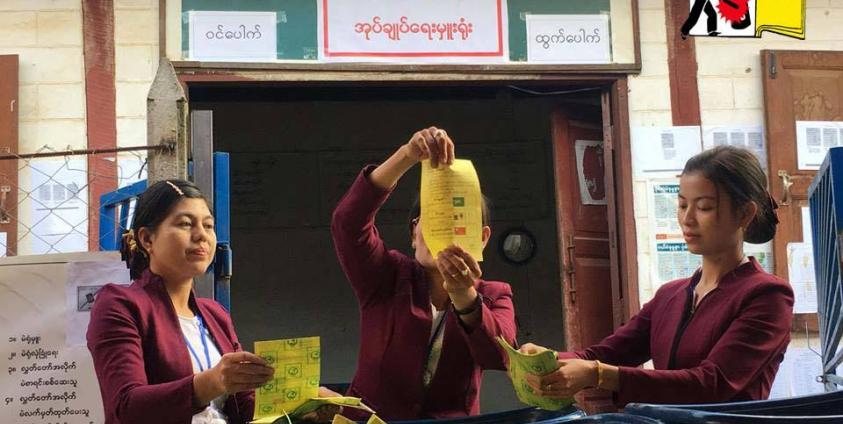SENG PHOO — Shan political parties have reported a range of challenges surrounding Burma’s 2020 election, which is set to occur amid the ongoing COVID-19 pandemic.
On July 1, the Union Election Commission (UEC) announced the date of the election as November 8.
Burma’s COVID-19 control committee extended its COVID-19 guidelines on social gatherings until at least July 15. Groups of more than five people are prohibited from gathering according to these restrictions, creating difficulties regarding election planning and campaigning.
“It’s too risky to hold the election amid the COVID-19 pandemic. There are many challenges,” Sai Lek, the general secretary of the Shan Nationalities League for Democracy (SNLD), told SHAN.
Even though the UEC has allowed the government’s election campaign to start from July 1, the commission has yet to release health and travel guidelines about how other campaigns should take place given the public health concerns, Sai Lek said.
Members of ethnic political parties have pointed out that the ruling National League for Democracy (NLD) has been able to start its own campaign but other parties have not been granted the same opportunity.
“It’s unfair to us. We cannot start an election campaign, but they can do it,” Sai Aik Pao, chairperson of the Shan Nationalities Democratic Party (SNDP), told SHAN. “This should not have happened.”
He objected in particular to the ongoing COVID-19 restrictions around the campaign, describing domestic transmissions of the coronavirus as less common than “imported” cases.
Political analyst Maung Maung Soe said that the restrictions have caused problems for political parties’ campaigns, but also suggested that if the election is not held, the country would be at risk for a political crisis.
“In my opinion, the election should be held. If the election cannot be held due to the COVID-19 pandemic, the government won’t change. Moreover, people will probably face a political crisis,” he told SHAN.
Political parties have also criticized the government for not developing an alternative course of action if the 2020 election cannot be held in November as planned.
The SNLD’s Sai Lek suggested that if the election is held any later than December, the transition of power might be more complicated, but also said that the campaign period allowed is too short.
“Are they going to allow an election campaign period of two months? Are they going to lift COVID-19 restrictions?” he said, adding that two months was insufficient to carry out a campaign.
He recommended that the UEC and the Ministry of Health and Sports discuss how to draw up updated health guidelines so that the election can go ahead.
“It will depend on the government’s management skills and generosity,” Sai Lek said. “For this to be a free and fair election, a fair and competitive environment must be created.”
Shan political parties said that all political parties should have equal opportunities for election campaign.
Burma’s last election was held in 2015, but voting was not held in multiple locations throughout Shan State, including five townships in the Wa Self-Administered Region, one township in the Mongla Region, as well as Mong Hsu, Kesi, and half of Tanyang Township due to ongoing conflict.







